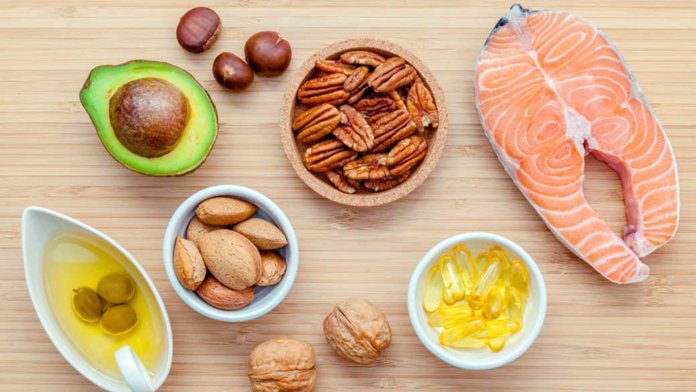Fat has a lot of mysticism and confusion surrounding it. For instance, on one hand we hear about healthy fats and that we need more of them, and on the other, we hear that fat causes arterial blockage, inflammation and other health concerns.
So, which is it? Is fat the mortal enemy, or is it an essential macronutrient with many health benefits?
The short answer is “both,” and here’s why.
Fat isn’t just Fat
To remove confusion, let’s start with the different kinds of fat and the nutritional role each plays:
- Unsaturated fats—These include fats containing omega 3 6 9 fatty acids which are typically liquid at room temperature. They are classified as “polyunsaturated” and “monounsaturated,” and their chemical structure contains one or more double bonds. For monounsaturated fats, this means one double bond, and for polyunsaturated, at least two double bonds. These are also considered healthy fats which you need for brain and cardiovascular health as well as many other benefits.
- Saturated fats—While considered healthy in moderation, saturated fats are normally solid at room temperature and are saturated with hydrogen atoms. They also contain no double bonds in their chemical makeup and bond with proteins to form LDL (low density lipid) cholesterol, which is the bad kind. (1)
- Trans or hydrogenated fats—These are the taboo fats which should be avoided if at all possible. They are usually found in processed and fried foods and are formed using vegetable oils which are chemically treated to stay solid at room temperature. They are associated with many chronic diseases such as stroke, heart disease, type-2 diabetes and cancer. (2)

Dairy, red meat and other sources of saturated fats should also be consumed only in moderation. It is also recommended that omega-3-rich grass-fed meat and dairy are favored over conventionally raised (grain-fed), omega 6-rich animal products. (3)
Omega 3 Benefits
Of the omega 3 6 9 spectrum, omegas 3 & 6 are considered essential. This is because they cannot be produced by your body and instead need to come from an outside source such as from avocado oil, flax oil, wild-caught salmon or other natural sources.
However, while omega 6s are critical to brain function, bone strength and healthy metabolism, they need to be balanced with omega 3’s. This is because omega 6’s alone cause inflammation while omega 3s inhibit the production of inflammatory compounds, which means a diet too high in omega 6s leads to chronic inflammation. In turn, this results in increased risk of cardiovascular disease, diabetes, obesity, rheumatoid arthritis and other chronic health conditions. (4, 5)

Omega 3 benefits also include:
- May help guard against depression and other mental conditions
- Helps lower your risk for cardiovascular disease
- May help reduce the risk for cognitive diseases such as Alzheimer’s and dementia
- Improves eye health, including lowering the risk for age-related macular degeneration
- May lower the risk for many types of cancer including breast and colorectal
- May help guard against rheumatoid arthritis (8)
Getting Your Healthy Fats
No, not all fats are bad for you, and some are highly essential as part of your healthy diet. By avoiding processed foods containing “white fats” such as hydrogenated or trans fats in favor of foods rich in omega 3 6 9 fatty acids, you can better avoid many chronic diseases.
And, you can do this by adding foods such as nuts, wild-caught fish, grass-finished beef, avocados and seeds such as chia or flax to your diet.
Altogether, this will help you have better energy, better focus, improved outlook and many other healthy benefits which only healthy fats can deliver.
References:
- https://www.verywellhealth.com/difference-between-saturated-fats-and-unsaturated-fats-697517
- https://www.healthline.com/nutrition/why-trans-fats-are-bad#insulin-sensitivity-and-diabetes
- https://www.ncbi.nlm.nih.gov/pubmed/16500874
- http://pennstatehershey.adam.com/content.aspx?productid=107&pid=33&gid=000317
- https://www.ncbi.nlm.nih.gov/pmc/articles/PMC3335257/
- https://www.ncbi.nlm.nih.gov/pubmed/20329590
- https://www.lifesdha.com/en_ES/news/why-the-brain-needs-omega-3-fatty-acids.html
- https://ods.od.nih.gov/factsheets/Omega3FattyAcids-HealthProfessional/




